- How Much Will It Cost to Wrap Your Car?
- The Average Cost to Wrap a Car
- Tools You Need to Wrap Your Car
- DIY or Pro: Everyone Needs the Right Tools
- Shining a Light on Different Vinyl Wrap Finishes
- The Quality of Your Vinyl Wrap is Paramount
- Choosing the Right Wrap for Your Vehicle's Size and Type
- Making the Cut: Full or Partial Vehicle Wraps
- How Do Body Kits on a Car Affect the Cost of Wrapping?
- Decoding the Influence of Temperature, Humidity, and Installation Setting
How Much Does It Cost To Wrap A Car? - - The Unbiased Truth
Car wrapping has become a popular choice for many people who want to give their vehicles a fresh new look. However, before deciding to wrap your car, it is essential, and just plain smart, to consider the costs involved. The price of car wrapping depends on various factors, such as the size of the vehicle, the type of wrap material used, and the complexity of the design (among other things).
It's important to note that when discussing the cost of car wrapping, one must consider the different types of wrap materials available in the market. These materials come in various grades, and their prices vary accordingly. The cheapest option is a vinyl wrap, which costs around $1,500 to $3,000 for a standard-sized vehicle. On the other hand, a high-quality paint protection film can cost up to $10,000 or more.
Therefore, it's essential to keep in mind the different types of wrap materials available and their respective costs when deciding on the best option for your vehicle.
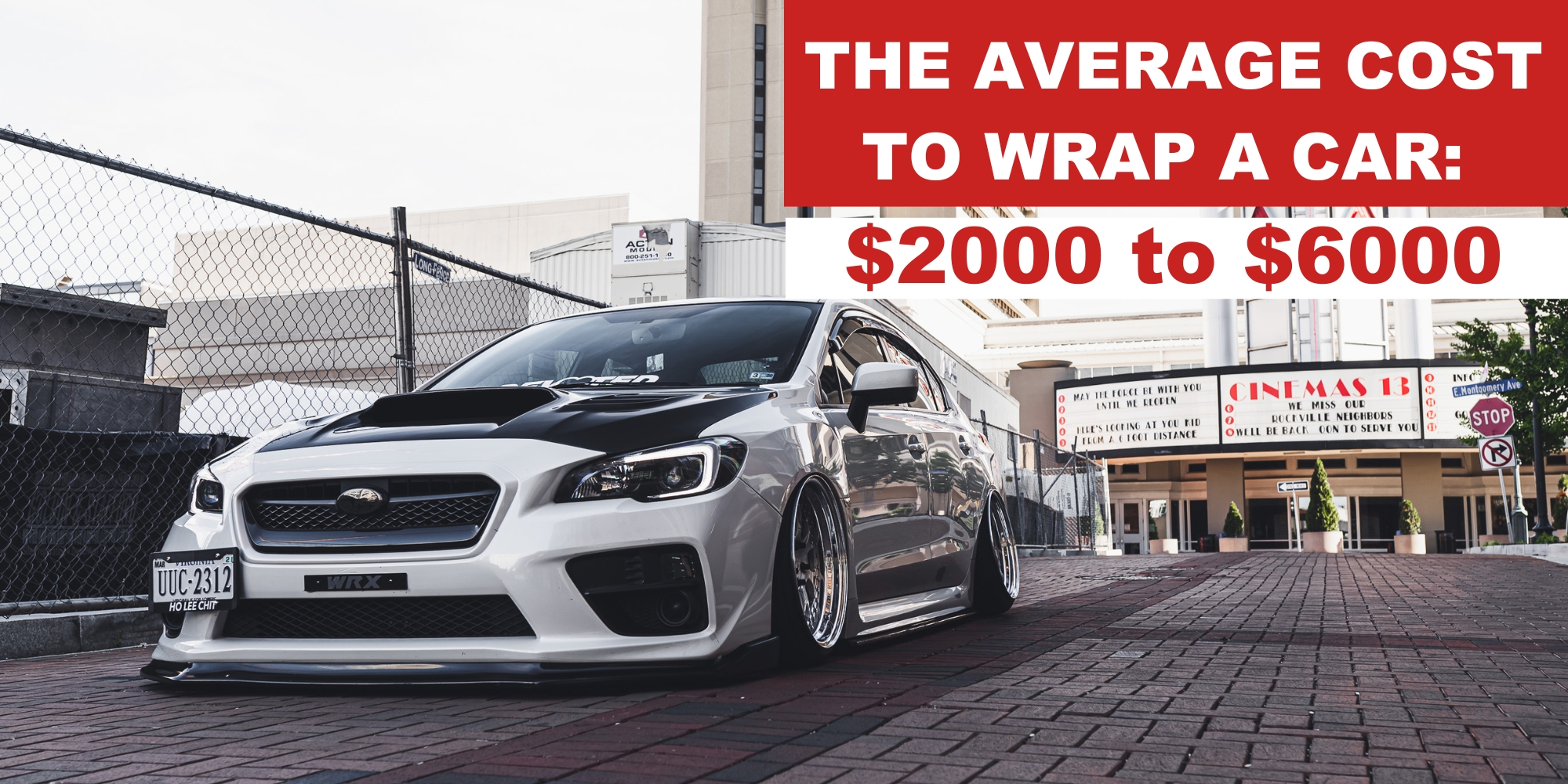
How Much Will It Cost to Wrap Your Car?
Rev up your engines and get ready to learn about the cost of wrapping your car! These days, car wraps are like armor for your ride, protecting it from the harshest of elements - from the blazing sun to the pounding rain. But just like a suit of armor, it comes with a price tag.
If you're thinking of getting a full car wrap done by a pro, the cost can vary depending on a few factors. You're looking at anywhere between $2,000 to $6,000, give or take a few gold coins. However, that's just a rough estimate. If you happen to own a luxurious exotic car that's in pristine condition, then you'll need to shell out anywhere between $10,000 to $12,000. Ouch, that's a lot of treasure!
But let's break it down even further. If you're thinking in terms of cost per square foot, a car wrap can range from $5 to $15. And that's not even including the installation charges, which can set you back another $3 to $4. But keep in mind that the final price can be influenced by the condition and type of car you have, as well as how you want the wrap to look. So don't be surprised if the total bill ends up being as high as $19 per square foot. Yikes, better start counting your doubloons!
The Average Cost to Wrap a Car
The lion's share of the cost goes into labor, not the high-quality automotive-grade vinyl that's used for the wrap. But if you're still curious about how much you can expect to pay for different types of vehicles, then here's the rundown:
- For a compact car, you're looking at a cost of around $2,000 to $3,000.
- If you have a mid-size car, then the price tag goes up to around $3,000 to $4,000.
- If you own a large vehicle like an SUV or a truck, then you'll need to set aside anywhere between $4,000 to $6,000.
- And if you're lucky enough to own a big rig or a bus, then the cost can go up to as much as $10,000.
So there you have it, folks! Now you know what to expect when it comes to wrapping your car. Just remember - it might cost you a pretty penny, but the end result is definitely worth it. After all, who wouldn't want to cruise around in a ride that looks like a million bucks?
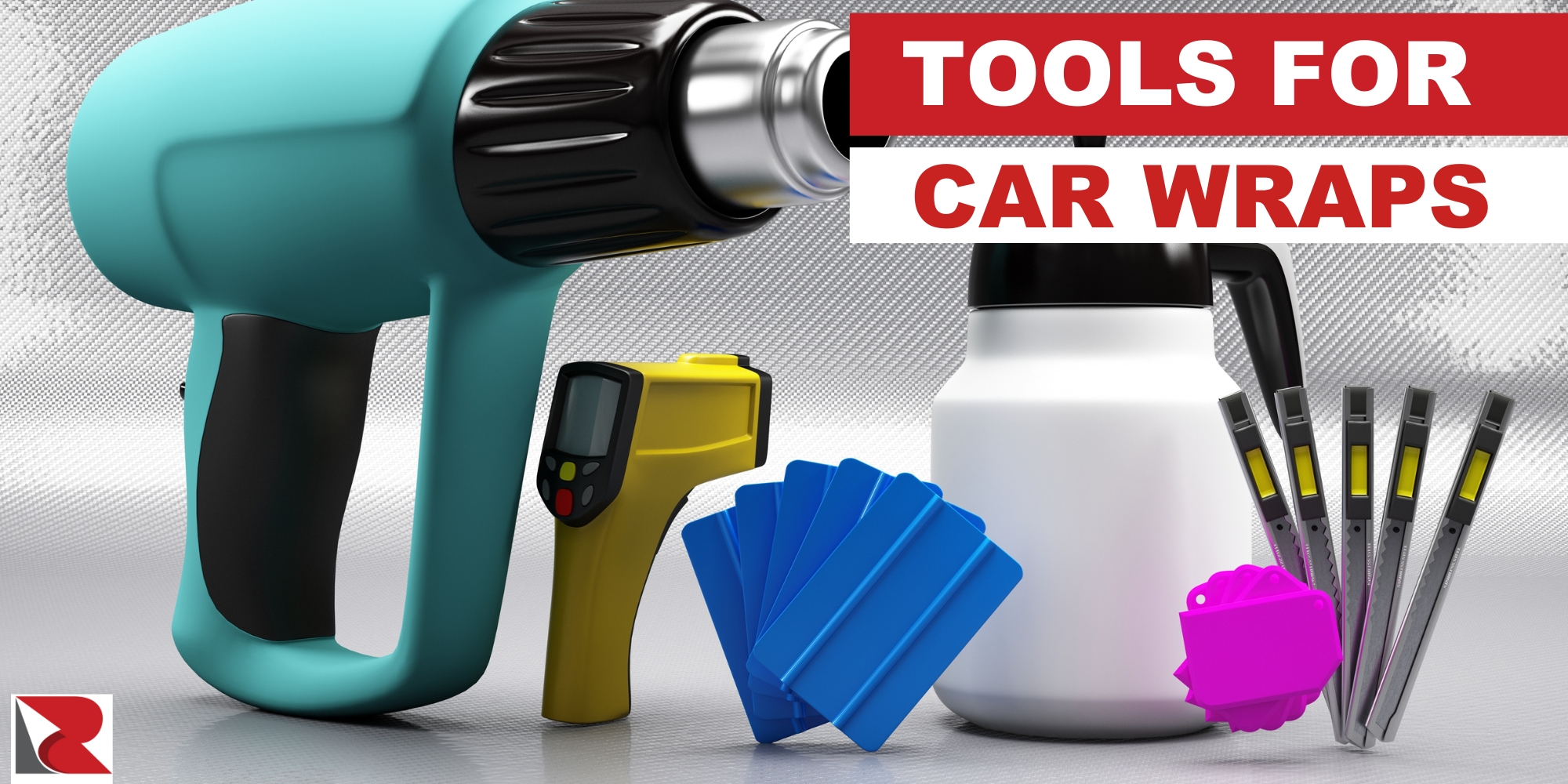
Tools You Need to WrapYour Car
Now that we've covered how much you can expect to pay to have someone wrap your ride, let's take a differnet approach: in other words, what tools will you need to wrap your own car. So, rev up your engines and get ready to learn about the tools you need to apply a vinyl wrap to your car! Aside from the vinyl itself, you'll need several different tools to get the job done right. These include the following:
- Squeegees: The squeegee is an essential tool for smoothing out air bubbles and creases when applying vinyl wraps. You'll need several types of squeegees for different areas of the car. For example, a larger squeegee is ideal for the hood and roof, while a smaller squeegee is better for tight corners and curves. We offer a variety of squeegees that are durable, flexible, and gentle on vinyl surfaces.
- Flextreme: Flextreme is a micro-squeegee that is specifically designed for vinyl applications. It's a versatile tool that can reach tight spots and contours without causing damage to the vinyl. The flextreme is also useful for removing air bubbles that can form during installation.
- Heat gun: A heat gun is a powerful tool that can soften the vinyl material, making it easier to apply and stretch. It's particularly useful for wrapping around edges and corners. However, it's essential to use the heat gun carefully to avoid overheating the vinyl and causing damage. We recommend using a heat gun with adjustable temperature settings and a nozzle attachment for precise application.
- Surface Prep: Before applying the vinyl wrap, you need to ensure that the surface is clean and free of debris. A surface cleaner is specially formulated to remove dirt, grease, and other contaminants that can affect the adhesion of the vinyl. We offer a range of surface cleaners that are safe for use on painted surfaces, plastic trims, and windows.
- Microfiber Cloth: A microfiber cloth is a soft, lint-free cloth that is ideal for wiping down surfaces after cleaning. It's gentle on the vinyl surface and won't scratch or leave streaks. We recommend using a microfiber cloth with a surface cleaner to achieve the best results.
- Knifeless Tape: Cutting tape is an essential tool for trimming the vinyl wrap to fit the car's bodywork. It's a low-tack tape that is designed to prevent the vinyl from lifting or tearing during cutting. We offer a range of cutting tapes that are easy to use and won't damage the vinyl.
- Blades: A sharp blade is a must-have tool for cutting the vinyl wrap precisely. It's important to use a new blade for each cut to avoid jagged edges and tearing. We recommend using a retractable utility knife with a snap-off blade for easy and safe cutting.
- Tweezers: Tweezers are a handy tool for removing air bubbles and debris from tight spots and corners. They're also useful for tucking the vinyl into edges and crevices. We offer a range of tweezers that are made from durable materials and have precision tips.
- Snitty blade (a safety cutter for vinyl): A snitty blade is a safety cutter for vinyl that is designed to prevent accidental cuts or damage to the car's bodywork. It's a small, handheld tool that is easy to use and provides clean, straight cuts. We recommend using a snitty blade with a retractable blade guard for added safety.
- Tape Measure: A tape measure is an essential tool for measuring the vinyl wrap before cutting. It's also useful for ensuring that the vinyl is applied evenly and symmetrically. We offer a range of tape measures that are lightweight, durable, and easy to read.
- Masking Tape: Masking tape is a low-tack tape that is useful for temporarily holding the vinyl in place during the installation process. It's also helpful for marking areas that need to be cut or trimmed. We recommend using a high-quality masking tape that won't leave a residue or damage the vinyl.
- Gloves: Vinyl wraps can be messy and require a lot of handling, which can result in smudges and fingerprints on the vinyl surface. Gloves are a must-have tool for keeping the vinyl clean and preventing damage from oils and dirt on the hands. We offer a range of gloves that are made from high-quality materials and provide a comfortable fit.
- Application Fluid Spray: A spray bottle is a useful tool for applying water or a soapy solution to the vinyl surface to aid in installation. It's also helpful for wetting the vinyl during the trimming process. We recommend using a spray bottle with an adjustable nozzle for precise application.
- Clay Bar: A clay bar is a tool that is designed to remove contaminants from the car's surface before applying the vinyl wrap. It's particularly useful for removing stubborn dirt, grease, and other debris that can affect the adhesion of the vinyl. We offer a range of clay bars that are gentle on painted surfaces and won't scratch or damage the vinyl.
DIY or Pro: Everyone Needs the Right Tools
When applying a vinyl wrap to a car body, a team of professionals can typically finish the job in three to seven working days, depending on the complexity of the bodywork and design. If you're doing it yourself, (especially now that you know everythin you'll need) the timeframe is up to you.
Applying a vinyl wrap to your car requires a lot of patience, attention to detail, and the right tools. We recommend using high-quality tools that are designed specifically for vinyl applications to achieve the best results. With proper care and maintenance, most vinyl wraps can withstand the elements for around three to five years. To keep your wrap in top condition, avoid using automatic or drive-thru car washes with harsh brushes that can damage the vinyl. Instead, have your car hand-washed whenever it needs cleaning. Remember to clean bird droppings and dead insects off the vinyl surface as soon as possible to avoid causing damage, and protect your wrap from prolonged exposure to hot temperatures and sunlight. And most importantly, never apply a car wrap to damaged paint, as it's basically a recipe for disaster. With these tips and tools, you'll be on your way to a stylish and durable vinyl wrap that will turn heads on the road!
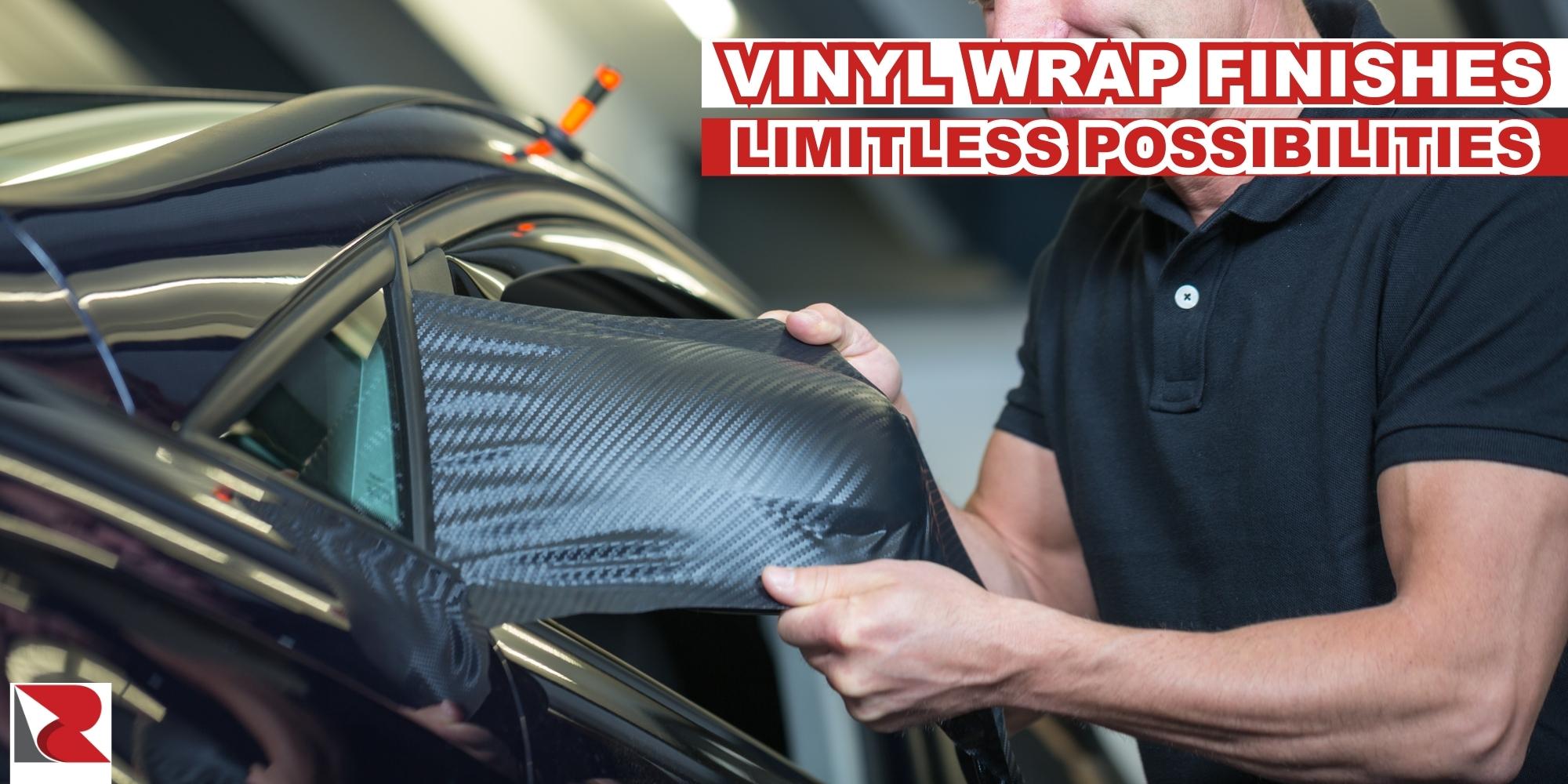
Shining a Light on Different Vinyl Wrap Finishes
As we've already seen, car wraps have become an increasingly popular way to update the look of your vehicle without the high cost of a traditional paint job. And, fortunately, when it comes to vinyl wrap finishes, the possibilities are nearly endless. Vinyl wrap colors come in every hue imaginable and finishes range from glossy to matte, textured to smooth. Whether you’re looking for a subtle change or an eye-catching design, there is a vinyl wrap finish that will fit your car-wrapping needs. In this section, we’ll be shining a light on different vinyl wrap finishes, so you can find the perfect look for your vehicle. For example, if you want to give your car a metallic look, a metal or metallic finish would be an excellent choice. These finishes come in a variety of colors, including silver, gold, and bronze, and can give your car a high-end, eye-catching appearance.
Alternatively, if you want to create a more unique and eye-catching look, a chameleon, holographic chrome, or pearlescent finish might be the right choice for you. These finishes change colors depending on the angle of the light, giving your vehicle an ever-changing appearance that will catch everyone's attention.
For a sleek and modern look, a matte or satin finish is a great option. These finishes are often used in high-end cars and can give your ride a sophisticated and understated appearance.
On the other hand, if you're looking to make a bold statement and turn heads wherever you go, a neon fluorescent or chrome finish is an excellent choice. These finishes are bright and eye-catching and will make sure that your car stands out from the crowd.
Let's take a closer look at some of the most popular finishes available in vinyl wrap films since choosing the right finish for your vinyl wrap is a crucial aspect of creating a custom look for your ride. By considering your personal style and preferences, as well as the look you're trying to achieve, you can select the perfect finish that will make your vehicle truly one of a kind. So, without further ado, here is a breakdown of some of the most popular finishes available:

Brushed Metal
Brushed metal is a type of vinyl wrap film that gives your car a sleek and sophisticated look. The process of brushing the film helps create a textured surface that resembles a metallic finish without having to paint it. This makes it ideal for those looking for an eye-catching look without the permanent commitment. 3M, a leader in the automotive wrap industry, offers a variety of brushed metal finishes from satin to gloss, giving you plenty of options when it comes to styling your ride. Plus, its easy to apply and remove, making it a popular choice for vehicle customization. So if you're looking for an edgy and modern look that won't break the bank, brushed metal vinyl wrap could be the perfect choice. Brands like rvinyl offer high quality versions of this film, such as Avery Dennison's MPI1105 Brushed Metallic Film. It's also worth noting that these types of wraps tend to cost less than other finishes since they require less installation time than other types of wraps. Ultimately, choosing the right finish all depends on what you want out of your ride, so make sure to do some research before deciding.

Carbon Fiber
Carbon fiber vinyl wraps are a popular choice for vehicle owners looking to give their car an edgy and sporty look. This type of vinyl wrap has a sleek finish that can be easily mistaken for actual carbon fiber material. It is composed of multiple thin layers of 3M vinyl, creating a textured and realistic-looking carbon fiber pattern. It is best suited for cars, motorcycles, and other vehicles that want to convey a strong and powerful look.
This vinyl wrap has excellent flexibility and durability, making it ideal for long-term outdoor applications. The 3M vinyl can resist fading and peeling even after prolonged exposure to sun and rain. It also has good resistance to scratches and abrasions, making it easy to maintain. This type of wrap is quite affordable, so it’s a great choice if you’re looking for a cost-effective way to customize your ride.

Shade-Shifter Chameleon
Shade-Shifter Chameleon vinyl wraps are a great option if you're looking for a unique look that stands out from the crowd. With these wraps, you can create eye-catching, custom designs with an ever-changing color palette that shifts in the light. 3M offers some of the most popular shade-shifting films, including the Avery Dennison Supreme Wrapping Film and the 3M Scotchprint Wrap Film Series 2080. These wraps allow you to customize your vehicle with a unique, iridescent finish that changes colors as you move around it. The colors range from blue, purple, green, and even red depending on the angle of the light. This film also provides superior protection from the elements, helping your car look newer for longer. Plus, Rwraps offers this type of wrap in multiple finishes so you can find the perfect one for your needs. From glossy to matte, satin, chrome and even carbon fiber looks, Rwraps has something for everyone! If you’re looking to get creative, they also offer perforated window wraps that can be printed with vibrant images or text. Plus, Rwraps products come with air release channels which make it easy to wrap and apply by eliminating air bubbles or wrinkles. You can choose from pre-cut pieces or purchase them by the meter which is perfect if you’re wrapping parts like your bumper or wing mirrors. All in all, Rwraps provides quality vinyl wrap finishes at unbeatable prices!

Chrome
Chrome wraps are one of the most popular vinyl wrap finishes, and they have become increasingly more accessible thanks to 3M. Chrome is a reflective finish that creates a brilliant, eye-catching appearance. It’s often used to accentuate certain features on cars, such as trim pieces or rims, but can also be applied to the entire car. Because of its popularity, it’s now available in a variety of shades, from light silver to darker gunmetal.
Chrome is considered to be a mid-range finish in terms of pricing. It typically costs between $2.50 and $4.50 per square foot when you hire a professional for the job. If you choose to do it yourself, you can expect to pay around $1 per square foot for quality chrome wrap film. So, if you’re wondering how much does it cost to wrap your car with chrome vinyl, you can expect to pay anywhere from $500-$2000.
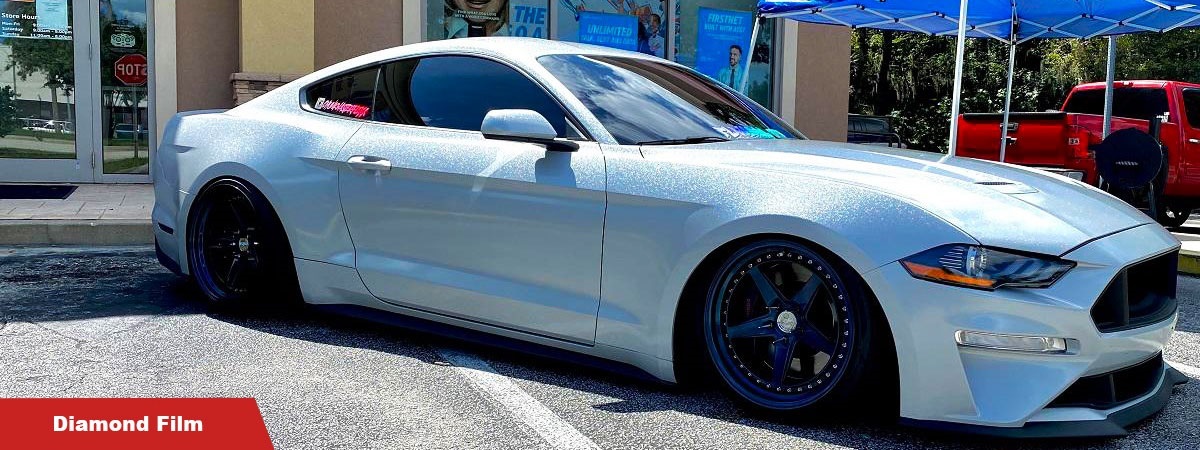
Diamond
Diamond film provides a bold, shimmering finish that mimics the look of diamonds. This finish is available in a variety of colors and can add a touch of luxury to any vehicle or surface. Avery Dennison makes a series of Diamond films which have an incredibe sparkle to them and are very popular among wrappers which leads to them frequently going out of stock.

Gloss
Gloss vinyl wraps are the most popular choice for vehicle wraps, and for good reason. Gloss wraps provide a sleek, high-gloss finish that is sure to turn heads. Easy to clean and maintain, gloss wraps are a great choice for anyone looking to make a statement. Plus, with so many colors to choose from – from brands like 3M, Orafol, Avery Dennison and Rvinyl – you can mix and match to create a unique look for your car. Whether you’re looking to wrap your car for cosmetic reasons or want to protect it from road debris and UV rays, gloss vinyl wraps are a great option for achieving both. How much does it cost to wrap your car? It all depends on the type of vinyl wrap you choose, but if you go with gloss, you’ll be sure to make an impression. Not only do they offer superior protection against everyday wear and tear, they also boast vibrant colors and textures. For those who really want to stand out, Rwraps offers a wide selection of custom designs and textures such as carbon fiber and chrome finishes. With Rwraps, you'll have the freedom to customize your wrap just how you'd like it, with options for partial wraps or full coverage. No matter what kind of look you're going for, Rwraps will help bring out the best in your ride. Their product selection covers all types of vehicles ranging from cars to boats and more. If you're looking for quality finishes at unbeatable prices, then don't hesitate to check out Rwraps!
Holographic Chrome
Holographic chrome vinyl provides an iridescent, reflective finish that can be used on the interior or exterior of your car or for cutting decals. This finish is ideal for those looking for a futuristic, eye-catching look.
Hyper Gloss
Hyper gloss is an intense, high-gloss vinyl film that will make the color of the vinyl look like it was freshly painted. It is an excellent option for those who want to give their vehicle a deep, rich look.

Leather
Leather vinyl provides a soft, luxurious finish that mimics the look of genuine leather and is one of the more luxurious options when it comes to car wrapping. It offers a classic, timeless look that’s perfect for luxury vehicles. Plus, it’s also highly durable and scratch resistant. Rwraps Leather Wrap Films come in a variety of colors and feature a soft-grain finish that can give your car a high-end look. Leather wraps also provide a great way to protect your vehicle’s original paint job while still maintaining the classic leather look. If you’re looking for a top-of-the-line finish for your car, then leather wrap is definitely an option worth considering.It is perfect for those looking to add a touch of sophistication to their vehicle's interior or for DIY projects.

Matte Chrome
Matte chrome vinyl provides a satin finish that mimics the look of chrome. This finish is available in a variety of bold colors and is perfect for those looking for a supple, unique finish.

Matte
Matte vinyl wrap films are a great option for those looking for a sleek, clean look for their vehicle. They give off a professional appearance without the shine of a gloss finish. Matte films are available from a number of popular wrap manufacturers, including 3M, Orafol, Avery Dennison, and Rvinyl.
Matte films come in a wide variety of colors and textures, allowing you to customize your car's look exactly to your tastes. However, it should be noted that matte films are more difficult to clean than gloss films, as dirt and debris can stick to the surface more easily.
In terms of cost, matte films typically range anywhere from $10-15 per square foot, depending on the brand and type of film. This is much cheaper than a full paint job, making it a great option for those looking to save money while still achieving a stunning look.
Ultimately, when deciding between matte and gloss finishes for your car wrap, consider the effect you're looking for. If you want to go for a sleek, professional look without too much shine, matte may be the perfect option for you.
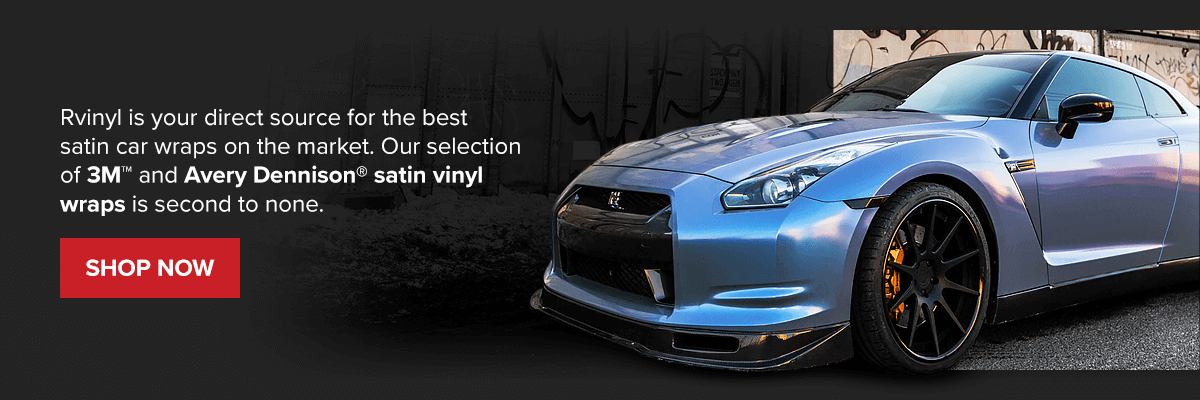
Satin
Satin vinyl wraps offer a softer, more subtle finish than gloss. 3M’s satin wraps provide a smooth, low-glare finish that resists dirt and fingerprints, and can be used to give your car a unique look. Satin wraps have the added benefit of being easier to keep clean than other finishes. Depending on the manufacturer, some of these wraps can also come with anti-UV protection. If you're looking for a finish that stands out without being overly flashy, satin could be a great option.
When it comes to cost, you can expect to pay anywhere from $3,000 to $5,000 to wrap your car in satin depending on the size of your vehicle. This is slightly less expensive than some of the other finishes such as chrome or carbon fiber, making it a more budget-friendly option if you're trying to save money.
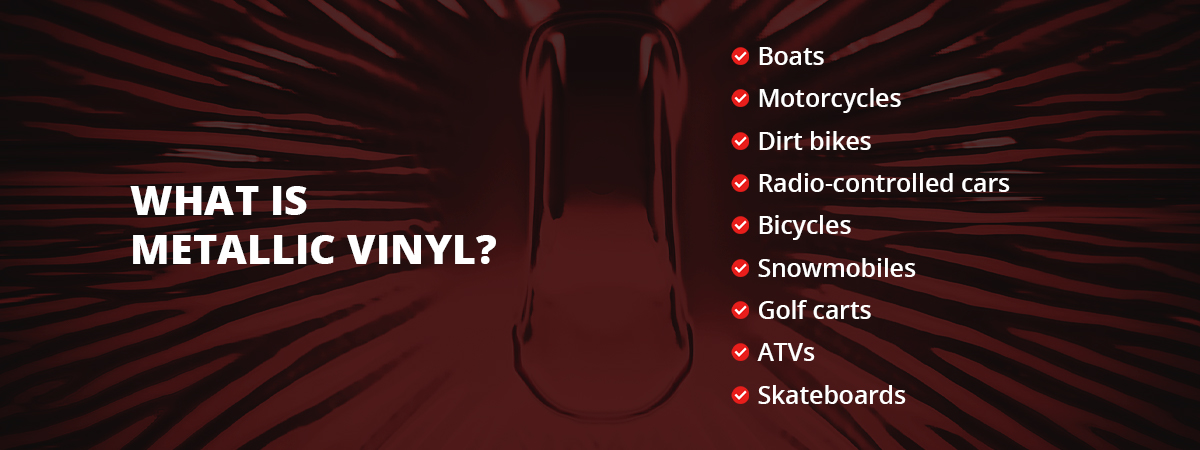
Metallic
Metallic vinyl wraps are becoming increasingly popular with car owners who want to make their vehicles stand out from the crowd. Metallic vinyl wrap films have a luxurious, reflective shine that produces an eye-catching finish. Produced by Rvinyl, this type of wrap can be applied to almost any surface for a custom look. The film is durable and resistant to fading, chipping, and peeling. It can also help protect the underlying paint from dirt, debris, and UV rays. With a wide range of color options available, you can choose from classic metallic hues such as gold and silver, or select one of the more unique shades like rose gold, bronze, and pearl. Orafol's premium ORACAL 970RA wrapping film has quickly become one of the most sought after brands in the industry due to its superior air release technology, making installation faster and easier. 3M Scotchprint 1080 Wrap Film Series features long-term outdoor performance along with anti-corrosive protection to help keep your vehicle looking great for years. Rvinyl's Carbon Fiber vinyl wraps come in both matte and glossy finishes so you can customize your vehicle's appearance to fit your style. Its embossed texture gives your vehicle the look of genuine carbon fiber while still remaining flexible enough to contour around its curves. Whether you're looking for a subtle finish or something that really stands out, there's sure to be a vinyl wrap finish perfect for your ride.
Neon Fluorescent
If you are looking for a vinyl wrap that stands out, neon fluorescent is the way to go. This film features an electrifying pop of color that’s sure to turn heads. 3MNeon Fluorescent Wrap Films come in colors like Electric Blue, Hot Pink, and Bright Yellow, giving you the opportunity to create a car wrap with a real “wow factorâ€. The colors are so bright and intense that they can be seen even during the day. These films also have a glossy finish and are made from a high-performance cast vinyl, making them durable and long-lasting. With 3M Neon Fluorescent Wrap Films, you can give your car a look that will be sure to make it stand out from the crowd.
Wrapping It Up: The Versatility of Vinyl Wrap Finishes for Car Customization
Vinyl wrap finishes have revolutionized the way we customize our cars. With a wide range of options available, car owners can now choose from a variety of finishes, colors, and textures to create a truly unique look for their vehicles. From metallic and carbon fiber to chameleon, holographic chrome, and neon fluorescent, the possibilities are nearly endless. The best part? Vinyl wraps are affordable, easy to apply, and can be removed without damaging the original paint job. So, whether you're looking for a subtle update or an eye-catching design, there is a vinyl wrap finish that will fit your car-wrapping needs. Just remember to consider your personal style and preferences, as well as the look you're trying to achieve, before selecting the perfect finish for your ride.
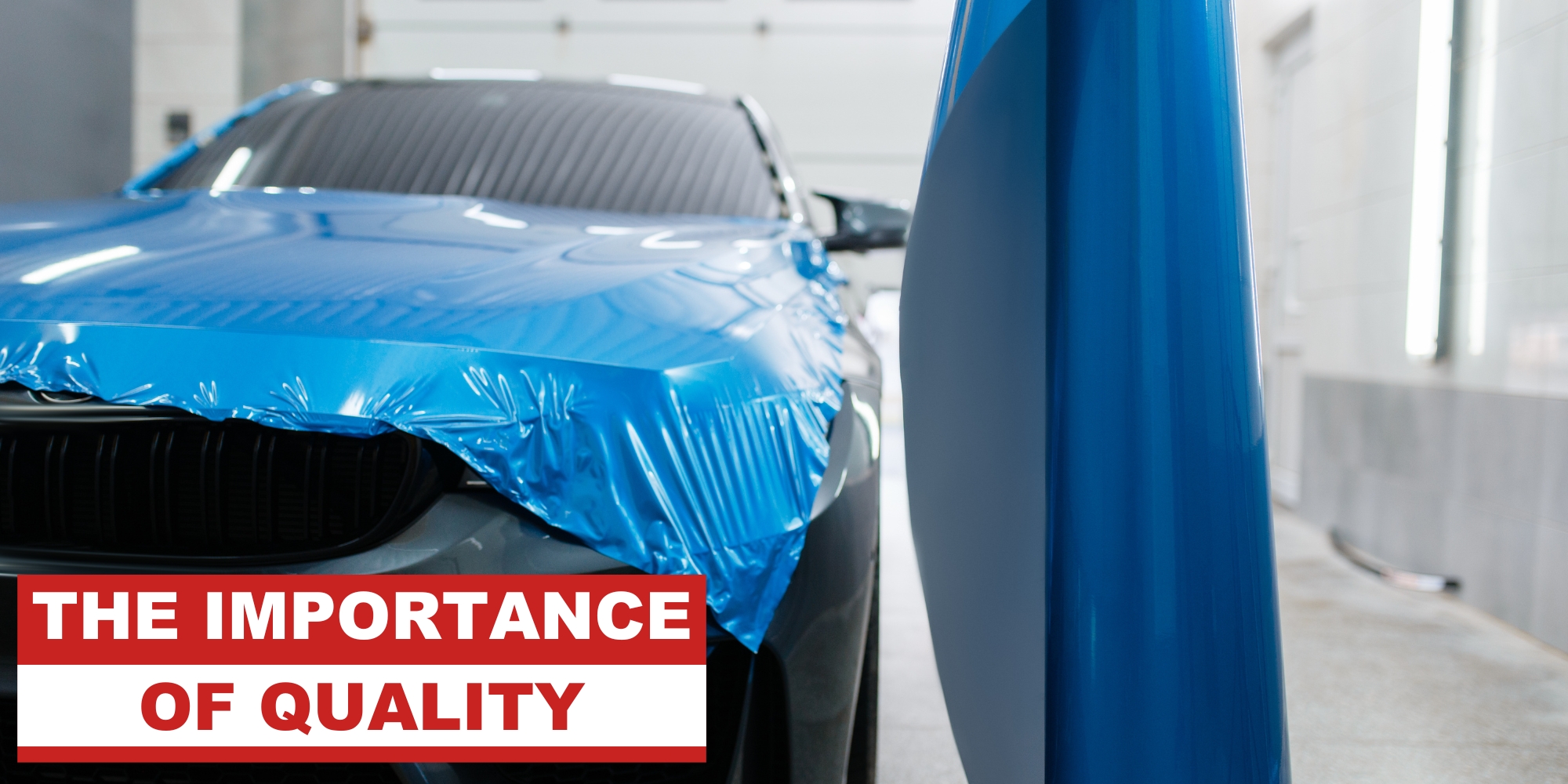
The Quality of Your Vinyl Wrap is Paramount
Vinyl wraps for cars are a popular choice for those who want to change the appearance of their vehicle without a permanent paint job. However, the quality of the vinyl wrap used is paramount to achieving a lasting and satisfactory result. The cost of the wrap and the type of vinyl should be considered before making a purchase, as cheaper wraps may not provide the durability, longevity, and UV protection that higher-end wraps offer.
Cast Vinyl vs. Calendared Vinyl
When it comes to vinyl wraps, there are two types available: cast vinyl and calendared vinyl. Cast vinyl is of higher quality and provides superior durability and flexibility compared to calendared vinyl. Cast vinyl can be easily repositioned during the installation process and is waterproof, making it ideal for outdoor use. It also provides better UV protection, which can help prevent the vinyl from fading over time. On the other hand, calendared vinyl is thicker and has a more aggressive adhesive, but over time, it tends to shrink and form bubbles, which can detract from the appearance of the wrap.
The Importance of Quality in Vinyl Wrap
While it may be tempting to opt for a cheaper vinyl wrap, it's important to remember that you get what you pay for. Cheaper wraps may appear acceptable at first, but eventually, they may begin to warp around edges and curves, form bubbles, or even crack. Even when removed, low-grade wraps can cause damage to the underlying paint job, leading to costly repairs and immense frustration. Therefore, it's important to invest in a high-quality vinyl wrap that provides the desired durability and longevity, without damaging the underlying paint job.
Comparing Brands of High-QualityVinyl Wrap FIlms
There are several high-quality vinyl wrap brands to choose from, each with their own unique features and benefits. Some of the top brands in the market include 3M 1080 or 2080, Avery Dennison SW900, ORAFOL 970RA, and Rwraps.
3M 1080 or 2080 Wrap Films
3M is one of the most trusted brands in the vinyl wrap industry, and their 1080 and 2080 series are some of the best wraps available. Both series are highly durable, flexible, and easily removable without causing damage to the paint. They are available in a wide range of colors and finishes, making it easy to find the perfect match for any vehicle. 3M also offers a variety of finishes, including gloss, matte, satin, and brushed metal.
Avery Dennison SW900 Supreme Wrapping Film
Avery Dennison is another top brand in the vinyl wrap industry, and their SW900 series is one of the best on the market. This high-quality cast vinyl wrap offers excellent conformability and durability, featuring patented adhesive technology for easy installation. It's also available in a wide range of colors and finishes, including gloss, matte, satin, and metallic.
ORAFOL 970RA Wraps
ORAFOL is a well-known brand in the vinyl wrap industry, and their 970RA series is a top choice for those seeking a long-term outdoor solution. This wrap is designed for long-term outdoor use, with excellent dimensional stability and conformability. It features a clear, solvent-based adhesive that allows for easy installation and removal, without damaging the underlying paint.
Rwraps Vinyl Wraps
Rwraps is an affordable and durable vinyl wrap brand that offers a range of colors, textures, and finishes. While it may not provide the same level of longevity as higher-end wraps, Rwraps is still a great option for those on a budget. It offers a range of finishes, including gloss, matte, satin, and metallic.
A Quality Wrap Up
In conclusion, investing in a high-quality vinyl wrap for your car is essential to achieve a lasting and satisfactory result. When choosing a vinyl wrap, it's important to consider the cost and type of vinyl, as well as the brand and its unique features and benefits. Cast vinyl is the superior choice for its durability, flexibility, and superior UV protection, while cheaper calendared vinyl should be avoided due to its tendency to shrink and form bubbles over time. When it comes to choosing a brand, 3M, Avery Dennison, ORAFOL, and Rwraps are all great options, each with their own unique features and benefits. Ultimately, the choice comes down to personal preference, budget, and desired level of durability and longevity. Investing in a high-quality vinyl wrap may come at a higher cost, but it's a worthwhile investment to achieve the desired result without damaging the underlying paint job. With the right vinyl wrap, your car can be transformed into a unique and eye-catching work of art.
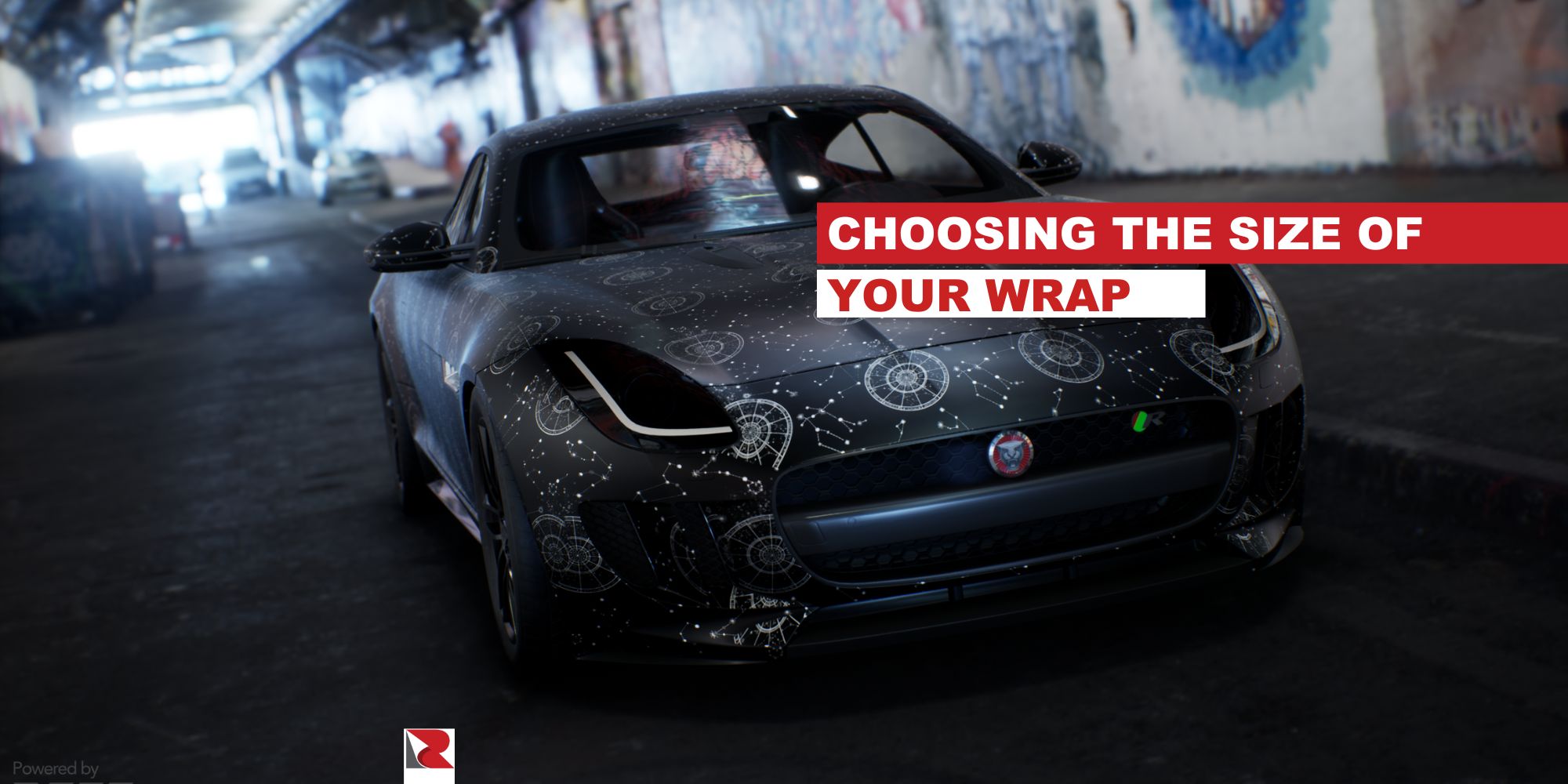
Choosing the Right Wrap for Your Vehicle's Size and Type
When it comes to vehicle wraps, choosing the right size and type for your vehicle is crucial to ensure the best possible outcome. Whether you're using a vehicle wrap for personal or commercial purposes, you want to make sure that it not only looks great but is also practical and functional. In this blog post, we'll cover the most common vehicle types and recommended sizes to completely wrap each type of vehicle.
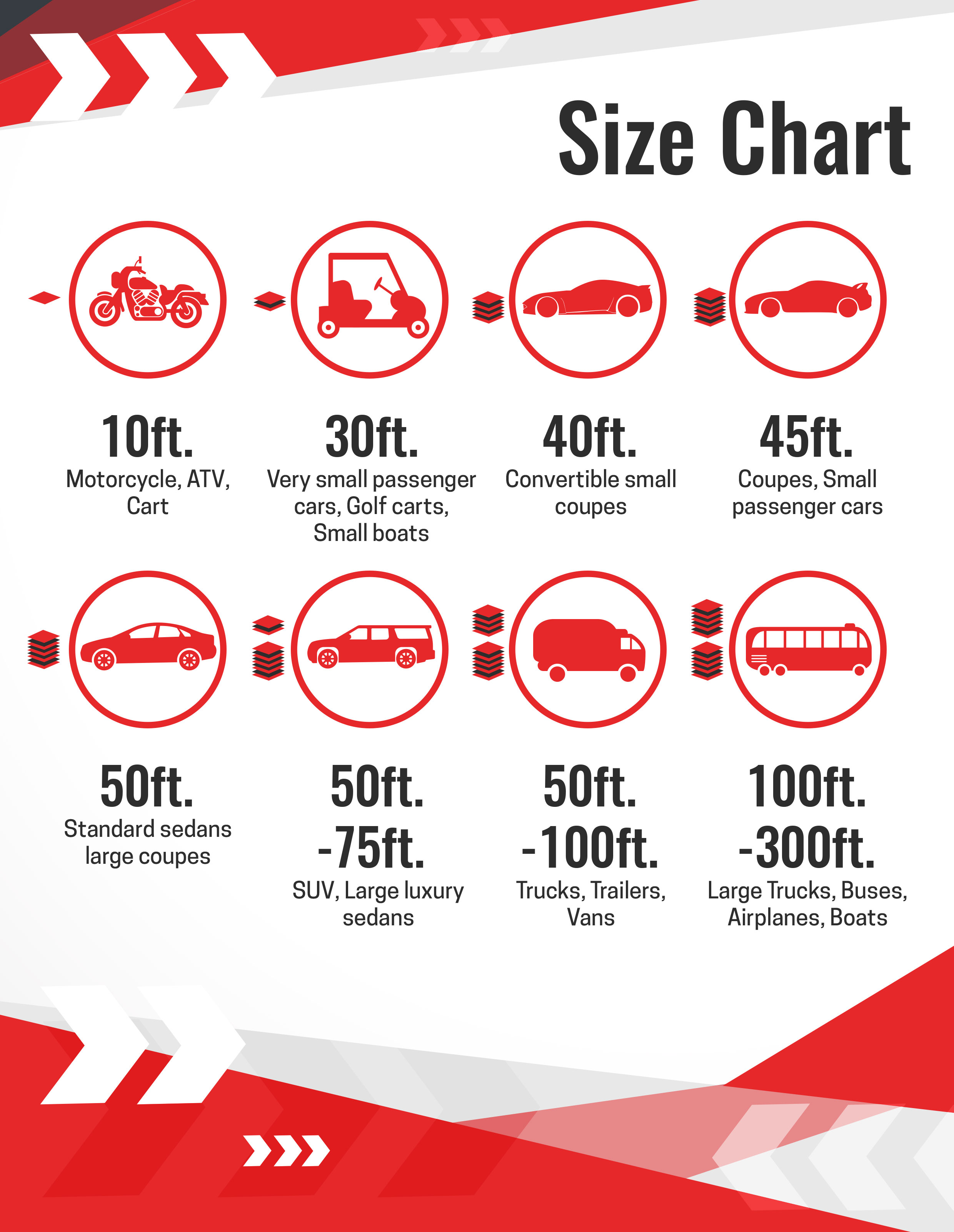
Vehicle Size and Recommended Wrap Sizes
The size of your vehicle will play a significant role in determining the recommended size of your vehicle wrap. The recommended size for each vehicle type is based on the average size of the vehicle and will ensure complete coverage of the vehicle's surface. Here are the recommended wrap sizes for each vehicle type:
- Motorcycles and ATVs:2 yards
- Golf carts, small boats and smart cars:10 yards
- Convertible small coupes:15 yards
- Coupes and small passenger cars:25 yards
- Standard sedans and large coupes:30 yards
- SUVs and large luxury sedans:35 yards
- Trucks, trailers and vans:50 yards
- Large trucks, buses, boats and airplanes:75 yards
Sedans and Compact Cars
Sedans and compact cars are the most common type of vehicle on the road. These vehicles are often used for personal transportation, but they are also popular for commercial use, such as ride-sharing services or small business delivery vehicles. When it comes to wrapping sedans and compact cars, the recommended size is typically 60 inches wide by 180 inches long. This allows for full coverage of the vehicle, including the hood, roof, and trunk. If you have a smaller compact car, you may be able to get away with a slightly smaller wrap size.
SUVs and Crossovers
SUVs and crossovers are larger vehicles that are popular for both personal and commercial use. These vehicles often have more surface area to cover, so it's important to choose the right wrap size. The recommended size for wrapping an SUV or crossover is typically 60 inches wide by 240 inches long. This size will cover the entire vehicle, including the roof and hood.
Pickup Trucks
Pickup trucks are a popular choice for commercial use, especially in industries such as construction or landscaping. When it comes to wrapping a pickup truck, the size will depend on the type of cab and bed you have. For a standard cab with a short bed, the recommended size is typically 60 inches wide by 180 inches long. For a crew cab with a short bed, the recommended size is 60 inches wide by 240 inches long. For a standard cab with a long bed, the recommended size is 60 inches wide by 240 inches long. And for a crew cab with a long bed, the recommended size is 60 inches wide by 300 inches long.
Vans and Box Trucks
Vans and box trucks are popular for commercial use, especially in industries such as delivery or moving. These vehicles have a lot of surface area to cover, so it's important to choose the right wrap size. The recommended size for wrapping a van or box truck is typically 60 inches wide by 360 inches long. This size will cover the entire vehicle, including the sides, roof, and rear.
Recreational Vehicles
Recreational vehicles, such as RVs and campers, are a popular choice for those who love to travel and explore. When it comes to wrapping an RV or camper, the size will depend on the size of the vehicle. For a smaller RV or camper, the recommended size is typically 60 inches wide by 180 inches long. For a larger RV or camper, the recommended size is 60 inches wide by 360 inches long. This size will cover the entire vehicle, including the sides, roof, and rear.
Motorcycles
Motorcycles are a popular choice for personal transportation and are often used for recreational purposes. When it comes to wrapping a motorcycle, the recommended size will depend on the type of motorcycle you have. For a standard motorcycle, the recommended size is typically 30 inches wide by 90 inches long. For a touring motorcycle, the recommended size is typically 60 inches wide by 120 inches long.
Making the Cut: Full or Partial Vehicle Wraps
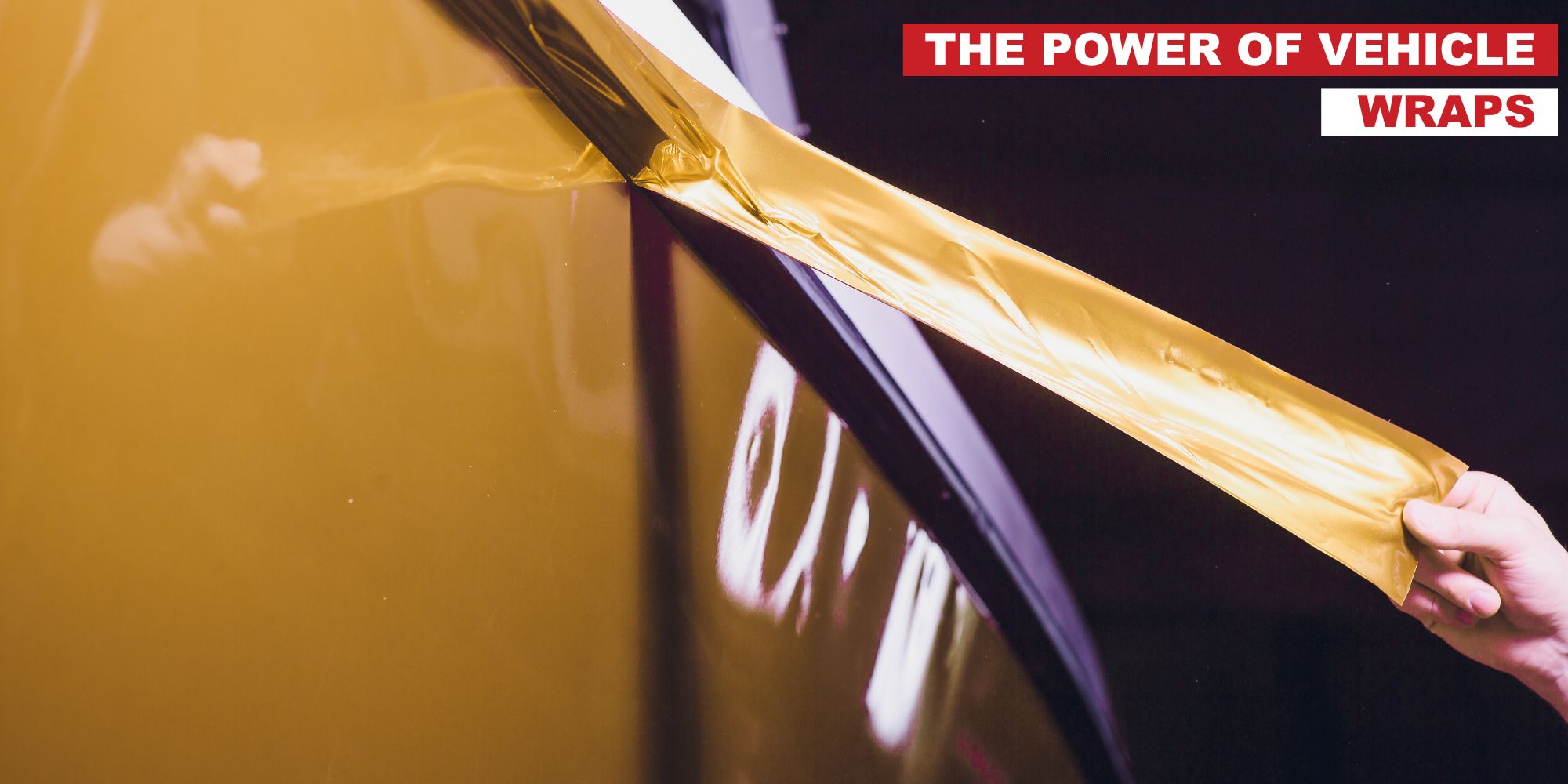
Transforming Your Vehicle: The Versatile World of Color Change Wraps
A vehicle is more than a means of transportation - it's an extension of your personality. And nothing personalizes your vehicle more distinctively than a color change wrap. Whether you're looking for a complete transformation or a subtle highlight, color change wraps offer the flexibility and versatility you need.
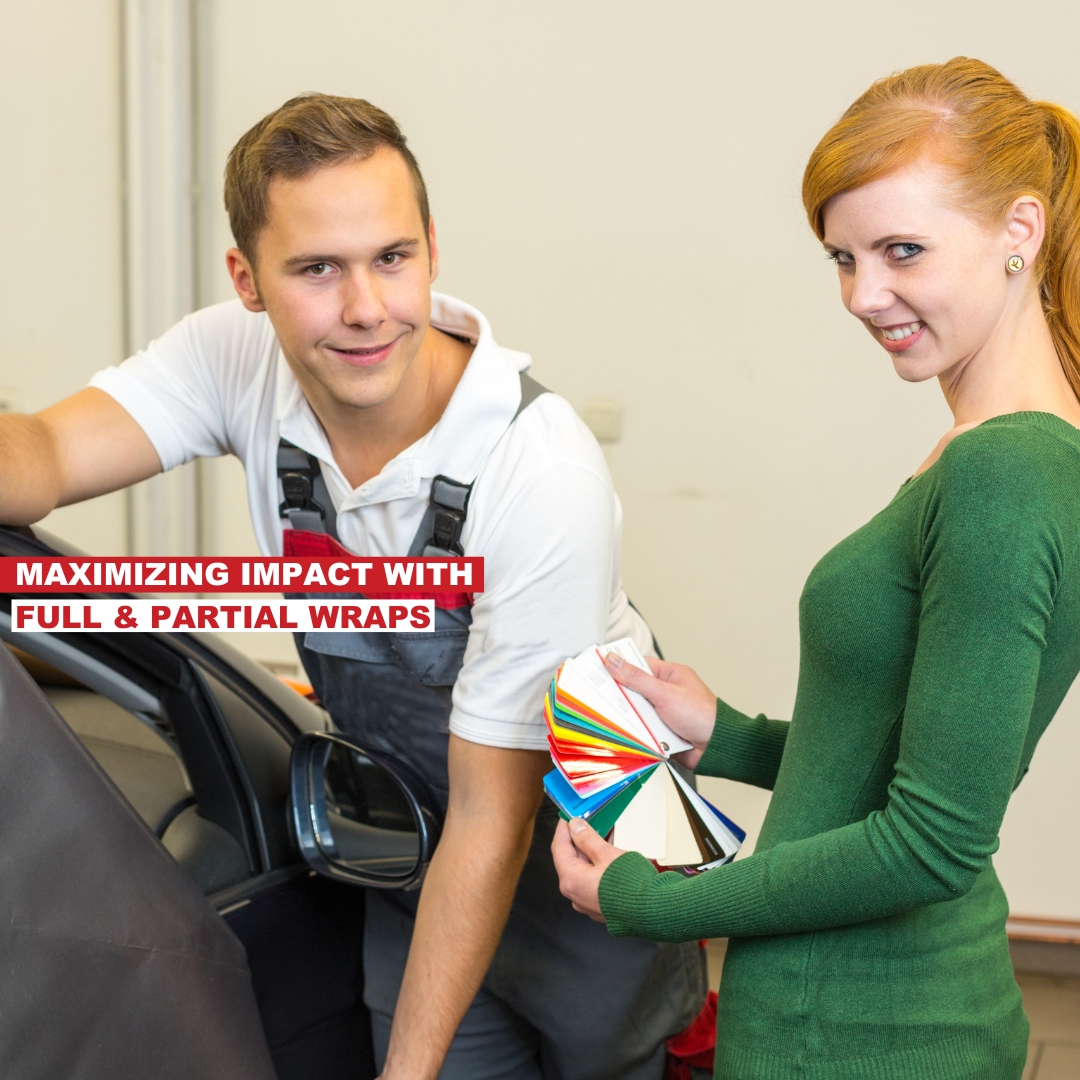
Full Color Change Wraps: The Ultimate Vehicle Transformation
There's nothing quite like the all-encompassing transformation of a full color change wrap. When you opt for a full wrap, you're choosing to envelop your car in a new identity. The full color change wrap doesn't just alter the aesthetics, but it creates a unique aura around your vehicle that's hard to match.
With a full color change wrap, the world becomes your palette. You can select from a wide array of colors, from the most vibrant shades to the most subtle tones. More than that, you have access to a variety of finishes, such as matte, gloss, metallic, and even textured. This freedom allows you to create a vehicle that is truly reflective of your personality.
Moreover, a full wrap acts as a shield, protecting your car's original paintwork against the wear and tear of everyday use, as well as weather elements. It helps maintain the vehicle in pristine condition, potentially increasing its resale value. It's an investment that not only transforms your car into a head-turner but also offers practical benefits.
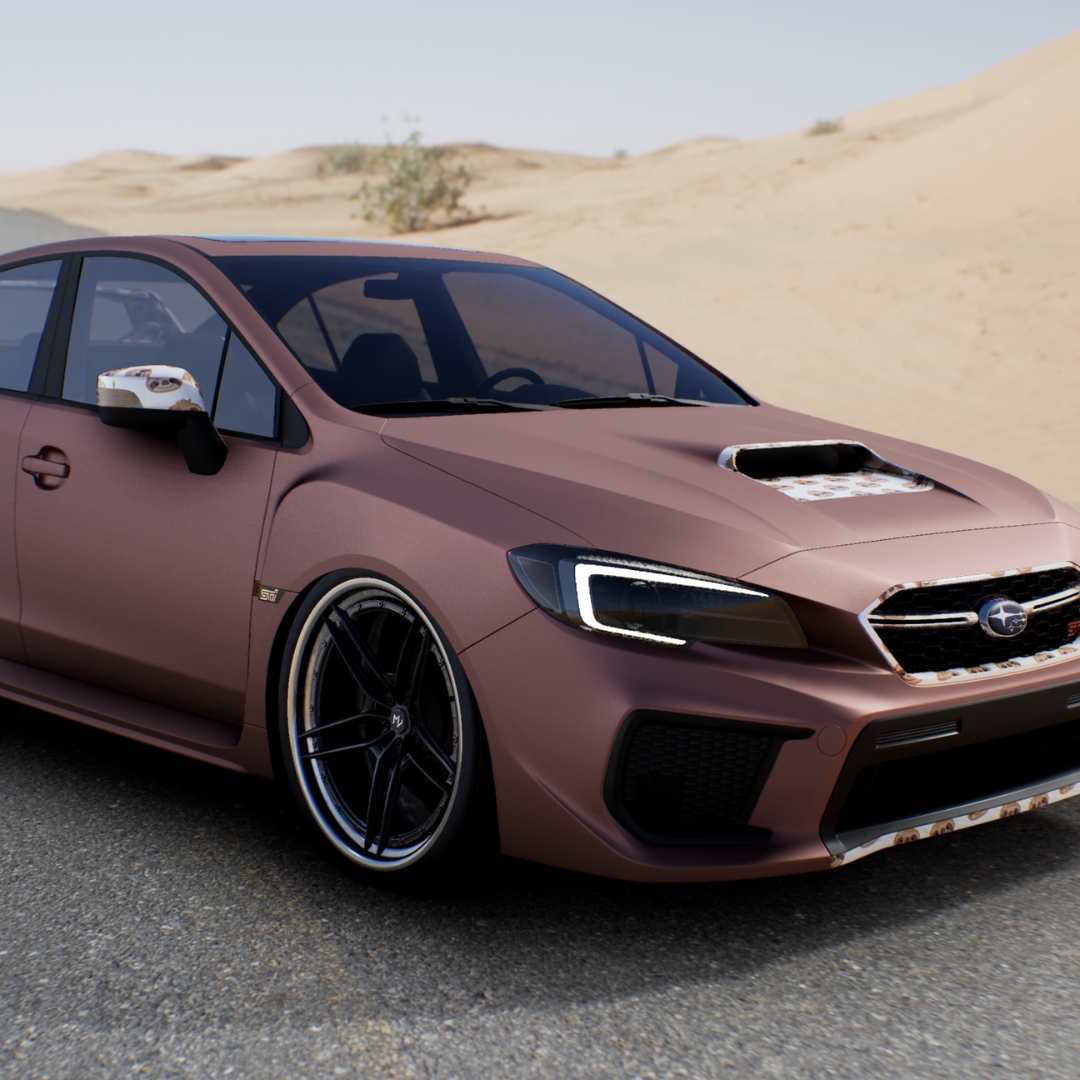
Partial Color Change Wraps: Stylish Highlights and Contrasts
For those looking for a touch of uniqueness without completely altering their vehicle's look, partial color change wraps are the perfect solution. Partial wraps allow you to change the color of specific parts of your car, creating a dynamic contrast that highlights the vehicle's design features.
Partial wraps bring a fresh perspective to your vehicle's appearance. By strategically choosing areas for application, such as the hood, roof, or side panels, you can dramatically alter the visual dynamics of your car. This is ideal for people who appreciate their car's original color but want to add a personal twist.
Just like full wraps, partial wraps also offer protection for the areas they cover, keeping the underlying paintwork safe from scratches and environmental damage. Moreover, they provide flexibility, as you can easily change or update part of the design without redoing the entire wrap. This keeps your vehicle's look fresh and exciting, always ready to match your evolving style.
Embracing the Art of Color Change: The Final Word
With full and partial color change wraps, the options for personalizing your vehicle are limitless. Whether you want a complete transformation or a stylish accent, wraps offer a flexible, cost-effective, and visually stunning solution. They represent an exciting avenue for expressing your personal style, all while protecting your vehicle and preserving its value. Choose a color change wrap and let your car become a unique expression of you.
How to Install a Partial Wrap
How Do Body Kits on a Car Affect the Cost of Wrapping?
The inclusion of body kits, such as aftermarket bumpers, spoilers, or side skirts, can significantly impact the cost of wrapping a car. These modifications have the potential to make the wrapping process more challenging and time-consuming. Due to the intricate design and additional components of body kits, wrapping professionals may need to invest more effort and time to ensure a proper and seamless wrap. As a result, the increased complexity and labor involved in wrapping cars with body kits often leads to higher costs for this particular customization.
Decoding the Influence of Temperature, Humidity, and Installation Setting
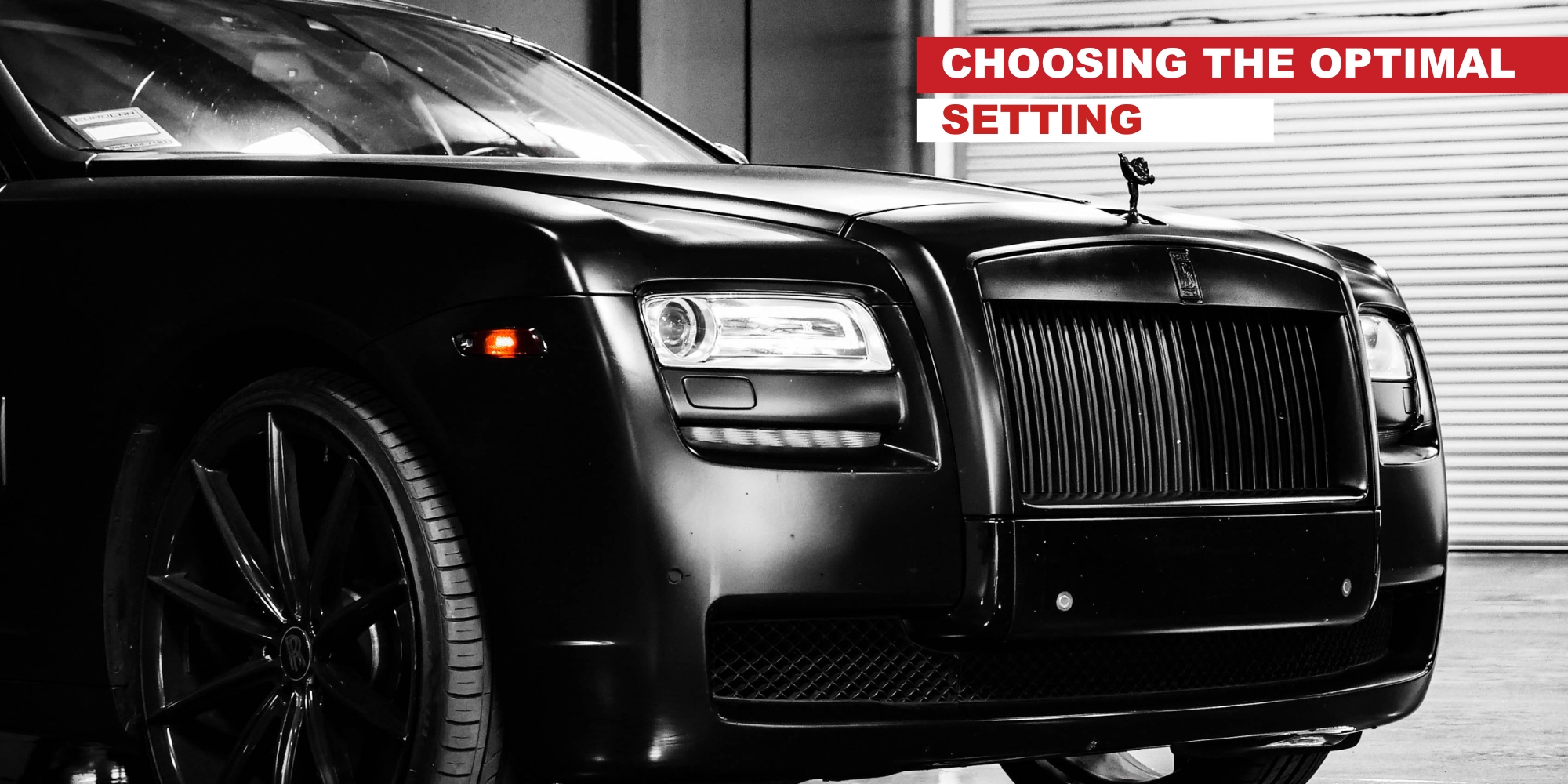
At Rvinyl, we are passionate about empowering our customers to revolutionize their vehicles' look with high-quality vinyl wraps. However, the quest for the perfect vinyl wrap isn’t just about choosing the right color or design; it’s also about understanding the nuances of the installation process. Key among these factors are the roles of temperature, humidity, and the choice between indoor and outdoor installation.
Delving into the Details: Temperature and Vinyl Wrap Application
Temperature plays a pivotal role when it comes to successful vinyl wrap installation. To comprehend its impact, let's delve into the science behind vinyl wrap adhesive.
The adhesive used in vinyl wraps is temperature sensitive. It needs an optimal amount of heat to create a robust bond with the car's surface. However, it's a delicate balance. The vinyl should also stay cool enough to avoid excessive pliability or stretch during application. The perfect balance ensures a smooth, bubble-free wrap that stands the test of time.
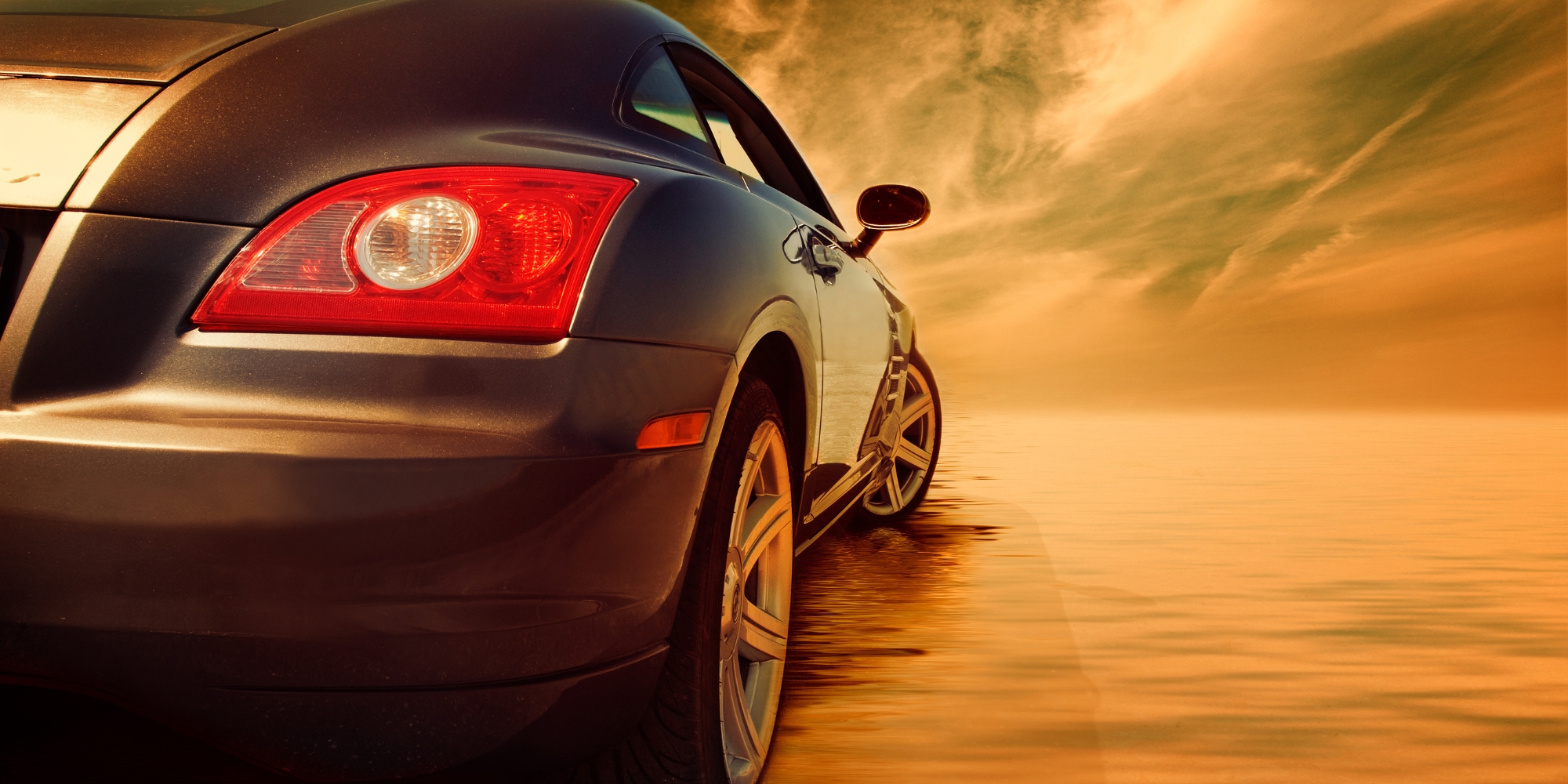
The Ideal Temperature for Application
A temperature range between 60-80 degrees Fahrenheit (15-26 degrees Celsius) is generally considered perfect for vinyl wrap application. This range is amicable for the adhesive, facilitating a firm bond with the car's surface while keeping the vinyl flexible yet controlled.
At temperatures below 60 degrees Fahrenheit, the adhesive can become too stiff, impairing its sticking capability. Also, the vinyl wrap turns less pliable, increasing the risk of tearing or damage. On the flip side, temperatures above 80 degrees Fahrenheit make the vinyl overly pliable. This heightened flexibility leads to overstretching and may result in distortions and a poor fit.
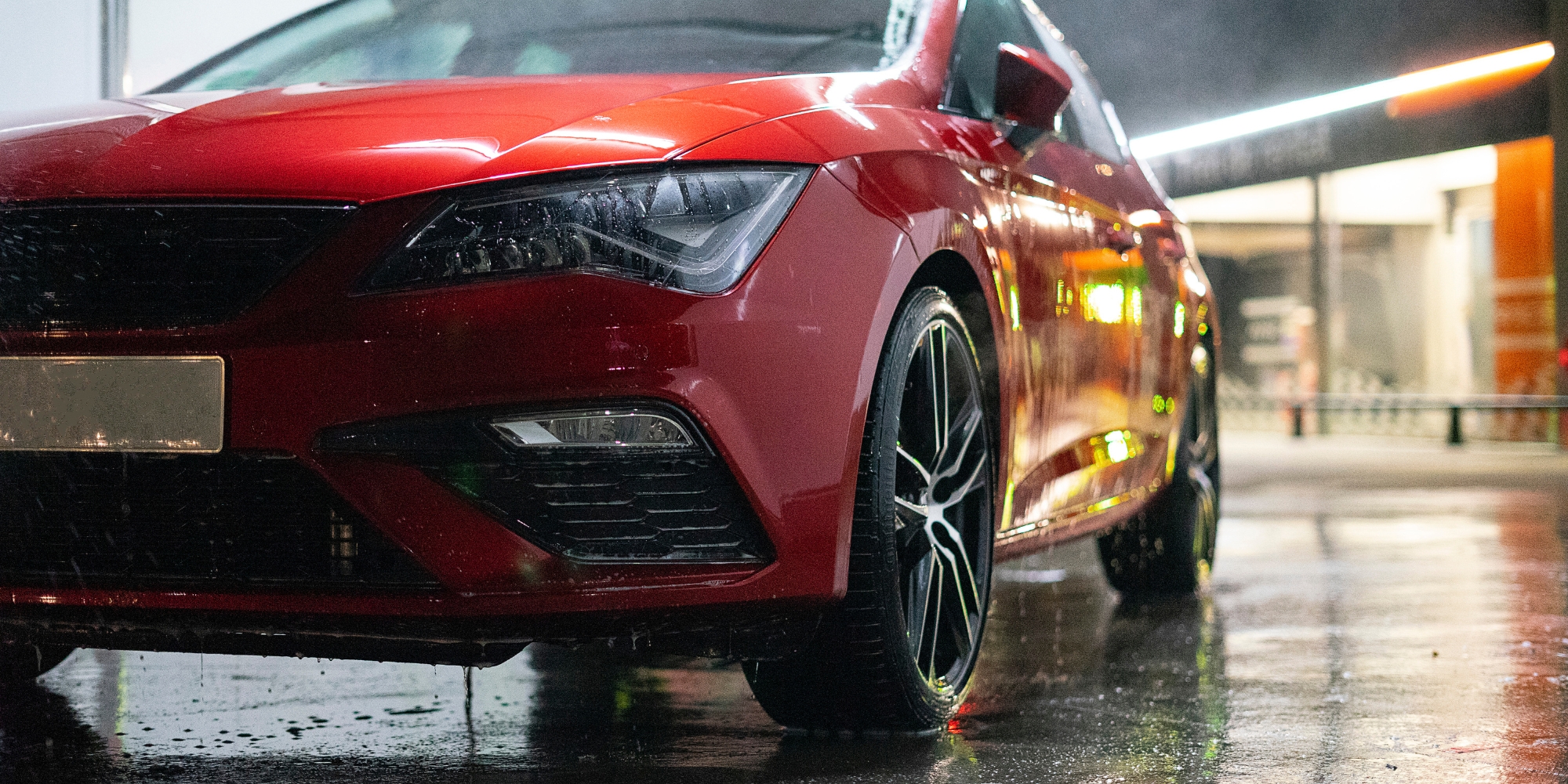
The Silent Role of Humidity in Vinyl Wrap Installation
While temperature is often the star of the show, humidity plays a vital, albeit silent role, in vinyl wrap application. High humidity levels can significantly impact the adhesive's bonding capability.
Navigating Humidity Levels
A less humid environment is preferred for vinyl wrap application. We recommend installing vinyl wraps in a setting with less than 50% relative humidity. In high humidity, moisture can compromise the adhesive's bonding process, which can lead to peeling or bubbling over time.
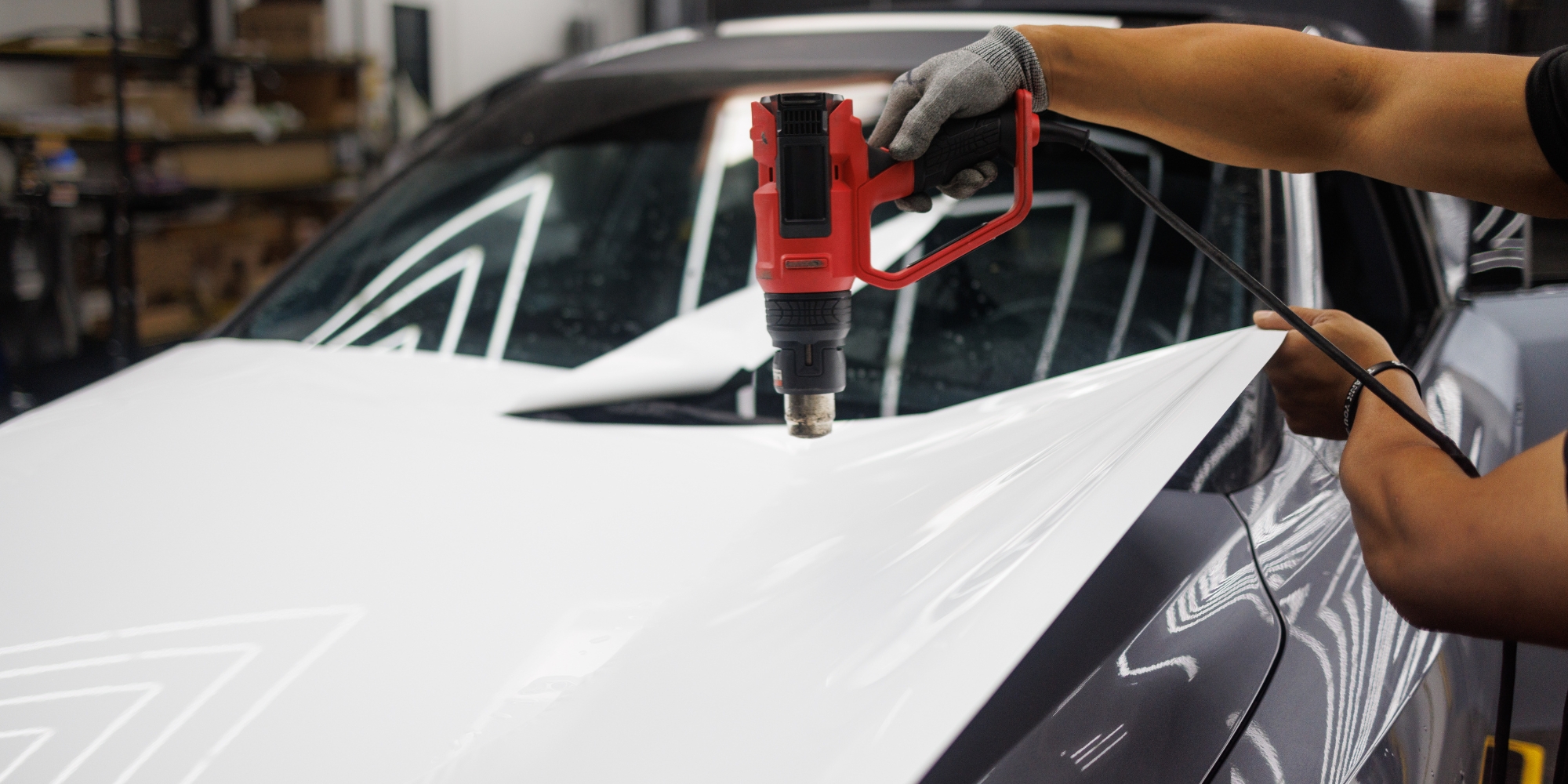
Choosing the Right Setting: Indoor vs Outdoor Installation
The significance of the right installation setting cannot be overstated. The debate between indoor and outdoor installation often centers around two factors: control over environmental conditions and exposure to elements.
Indoor Installation: The Preferred Choice
Indoor settings generally win the favor due to the increased control they provide over environmental conditions such as temperature and humidity. Indoor installations ensure protection against sudden temperature fluctuations, unanticipated rain, or gusty winds, which could interfere with the vinyl wrap application.
A controlled environment also provides better lighting conditions, offering installers the ability to see and address any imperfections such as bubbles or wrinkles promptly.
Outdoor Installation: Challenges and Considerations
While outdoor installations might offer more space and natural light, they also bring unpredictability in terms of environmental conditions. Elements like wind and dust can introduce debris under the wrap, affecting the overall quality and finish of the installation.
If an outdoor installation is the only available option, it's crucial to pick a calm, dry day with temperatures within the optimal range.
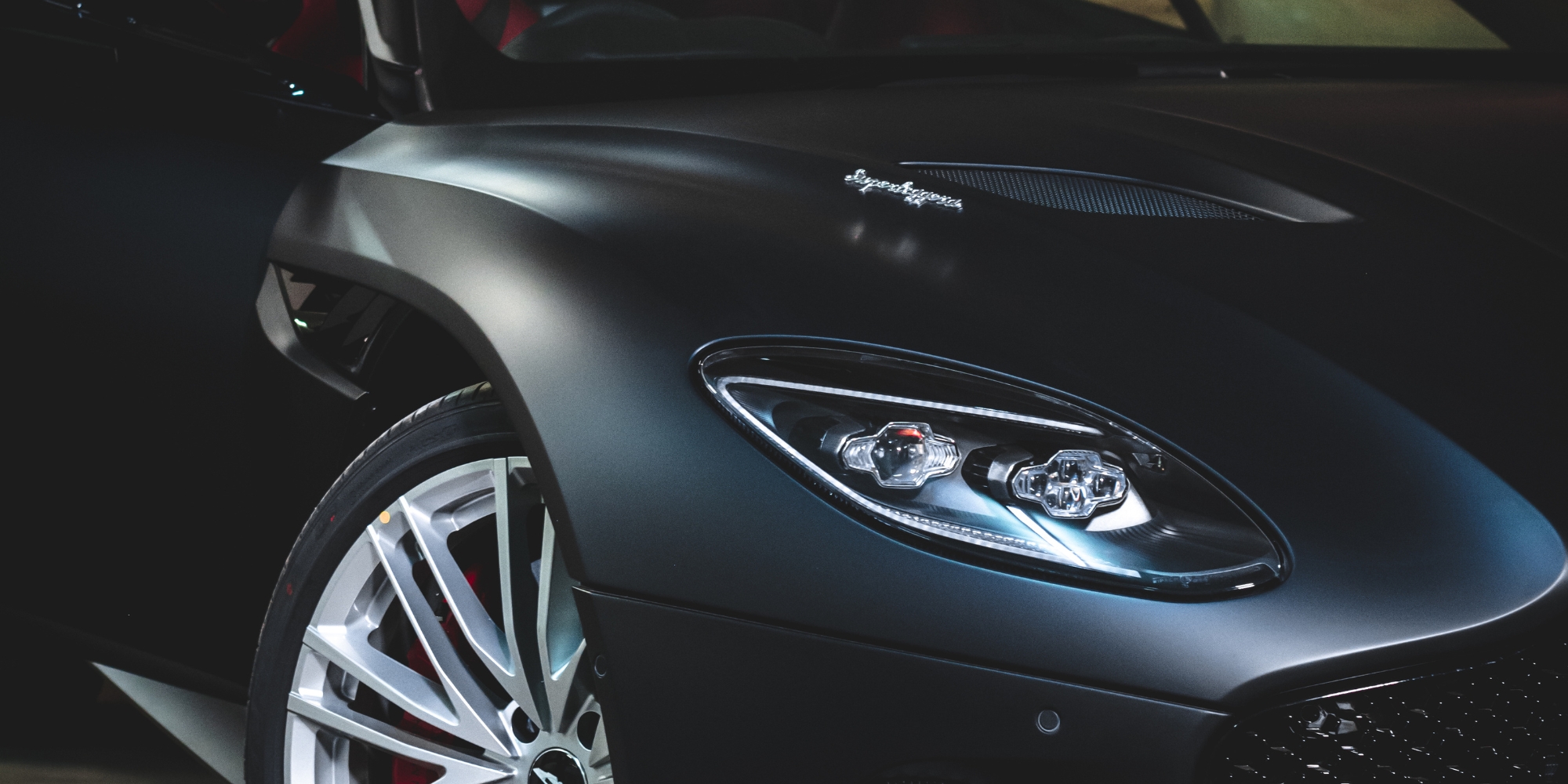
The Path to Perfection: Essential Dos and Don’ts
Understanding the roles of temperature, humidity, and installation setting sets you on the path to a successful vinyl car wrap installation. Let’s consolidate these insights with a handy list of Dos and Don’ts.
Dos
-
Do Prioritize Surface Preparation: A clean, wax-free car surface ensures the adhesive can bond properly.
-
Do Utilize a Heat Gun: It aids in making the vinyl more flexible and easier to manage, particularly around curves and corners.
-
Do Adopt a Slow and Steady Approach: Patience is key when installing the wrap. Hasty work may lead to imperfections.
-
Do Opt for an Indoor Installation: A controlled environment ensures optimal temperature and humidity levels and protects your work from unexpected elements.
Don'ts
-
Don't Rush the Process: Vinyl wrap application requires a careful, patient approach.
-
Don't Neglect Temperature and Humidity: These factors significantly influence the adhesive’s effectiveness and the vinyl wrap’s pliability.
-
Don't Overlook Surface Preparation: Thorough cleaning of the car’s surface is non-negotiable before installation.
-
Don't Proceed with Installation on Windy Days: Wind can make the vinyl difficult to control and may introduce dust and debris under the wrap.
By following these guidelines and giving due importance to temperature, humidity, and the installation setting, you'll be well-equipped to handle your vinyl wrap installation. Whether you're a seasoned professional or a DIY enthusiast, these insights from Rvinyl will ensure your car wrap shines in all its glory.